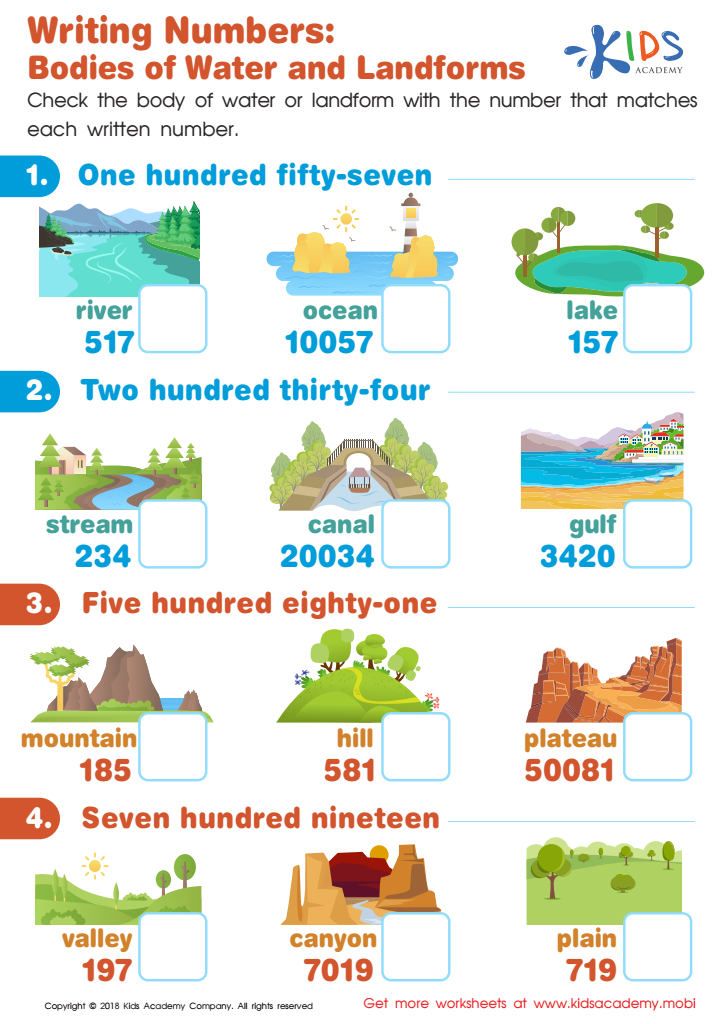Body of water identification Worksheets for Kids
1 filtered results
-
From - To


Bodies of Water and Landforms Writing Numbers Worksheet
Question/Answer
How to test a Grade 2 student’s Body of water identification skills?
To test a Grade 2 student's body of water identification skills, use flashcards with pictures of various bodies of water, such as rivers, lakes, oceans, and ponds. Ask the student to identify each body of water by name.
Why is the Body of water identification skill important for Grade 2 students?
The Body of Water identification skill is important for Grade 2 students as it enhances their geographic knowledge, helps them understand the earth’s surface and ecosystems, fosters curiosity about different environments, and introduces basic concepts of conservation.
How does the mastery of the Body of water identification skill affect a student's performance at an early age?
The mastery of the Body of Water Identification skill at an early age positively impacts a student's performance by enhancing geographical knowledge, improving cognitive skills related to classification and differentiation, and fostering a greater understanding of environmental science. This foundational skill sets the stage for advanced learning, encourages curiosity about the natural world, and contributes to a holistic educational development.

 Assign to the classroom
Assign to the classroom












